HOME | ABOUT US | MEDIA KIT | CONTACT US | INQUIRE
HOME | ABOUT US | MEDIA KIT | CONTACT US | INQUIRE
More than a decade ago, college executives studying the demographic tea leaves saw a storm coming. The numbers of births in the U.S. had been declining for years; by the time 2020 arrived, the shifts would be seismic. Their worst fears were realized. As college enrollment continues to drop, threatening the ability of the U.S. work force to meet its staffing needs, universities across America have refocused their efforts on sleeker, more relevant programs and methods. Here are some of those charged with righting the ship at every level: From the university presidents’ offices to the ranks of K-12 policymakers, these are the leaders Missouri and Kansas are turning to for solutions.
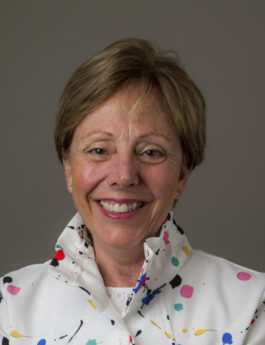 When UMKC turned to Mary Anne Jackson to take the reins of its medical-school program on an interim basis in 2018, it wasn’t just getting a nationally-known figure in pediatric infectious diseases. It wasn’t just getting someone ideally suited to help lead the public-health response to the global pandemic yet to come. It was getting one of its own: Jackson was among the first cohorts of students to enroll in a novel approach to medical training back in 1972, a year after UMKC’s School of Medicine rolled out a six-year program for high school graduates. This St. Louis native earned her degree in 1978, and began charting a course in both pediatric medicine at Children’s Mercy, and the instruction of future physicians who would practice it as a professor at UMKC. In 2020, with the COVID crisis still unfolding, she came full circle with her alma mater by dropping the “interim” on her role as dean, fully embracing the task of leading more than 500 enrolled students. “When the then-acting chancellor, Dr. Barb Bichelmeyer, approached me, there were several factors I considered,” Jackson recalls. “There had never been a graduate of the school in the UMKC medical school’s 50-year history, and as someone who had been engaged as a faculty member for more than three decades, I saw the opportunity to make a difference. I saw great people who had a willingness to work together with a collaborative spirit.” She enacted a series of town-hall meetings that have become monthly affairs, and set goals for her tenure: “To be visible, accessible and engaged, to foster diversity and inclusion as core values, to build our preclinical resources, to improve the physical infrastructure, to build talent and team, a vibrant research discovery enterprise, engage and strengthen ties with our alums and promote our national reputation—and to ensure that words and action aligned.” She says she didn’t anticipate a global health crisis, “but I hope my expertise and experience allowed us to move forward on many of the medical-education challenges amplified by the pandemic.” Her peers in medical schools nationwide faced similar challenges with their own programs, she says, so she tapped into their collective wisdom with weekly meetings to compare notes, programs, successes and challenges—a process that continues today. Academic leadership, though, came with a price: “Here at UMKC, we have made great progress and I am excited about our future. I did have to give up my direct patient-care roles, but I continue to be engaged in our weekly patient-care conference at Children’s Mercy,” she says. She also speaks nationally on pediatric infectious-disease topics and within national societies, continues to serve as a mentor for young faculty, and stays engaged in research. “The average life span of a dean is three years,” she says, “and at five-years-plus, I recently had the opportunity to take on a new role.”
When UMKC turned to Mary Anne Jackson to take the reins of its medical-school program on an interim basis in 2018, it wasn’t just getting a nationally-known figure in pediatric infectious diseases. It wasn’t just getting someone ideally suited to help lead the public-health response to the global pandemic yet to come. It was getting one of its own: Jackson was among the first cohorts of students to enroll in a novel approach to medical training back in 1972, a year after UMKC’s School of Medicine rolled out a six-year program for high school graduates. This St. Louis native earned her degree in 1978, and began charting a course in both pediatric medicine at Children’s Mercy, and the instruction of future physicians who would practice it as a professor at UMKC. In 2020, with the COVID crisis still unfolding, she came full circle with her alma mater by dropping the “interim” on her role as dean, fully embracing the task of leading more than 500 enrolled students. “When the then-acting chancellor, Dr. Barb Bichelmeyer, approached me, there were several factors I considered,” Jackson recalls. “There had never been a graduate of the school in the UMKC medical school’s 50-year history, and as someone who had been engaged as a faculty member for more than three decades, I saw the opportunity to make a difference. I saw great people who had a willingness to work together with a collaborative spirit.” She enacted a series of town-hall meetings that have become monthly affairs, and set goals for her tenure: “To be visible, accessible and engaged, to foster diversity and inclusion as core values, to build our preclinical resources, to improve the physical infrastructure, to build talent and team, a vibrant research discovery enterprise, engage and strengthen ties with our alums and promote our national reputation—and to ensure that words and action aligned.” She says she didn’t anticipate a global health crisis, “but I hope my expertise and experience allowed us to move forward on many of the medical-education challenges amplified by the pandemic.” Her peers in medical schools nationwide faced similar challenges with their own programs, she says, so she tapped into their collective wisdom with weekly meetings to compare notes, programs, successes and challenges—a process that continues today. Academic leadership, though, came with a price: “Here at UMKC, we have made great progress and I am excited about our future. I did have to give up my direct patient-care roles, but I continue to be engaged in our weekly patient-care conference at Children’s Mercy,” she says. She also speaks nationally on pediatric infectious-disease topics and within national societies, continues to serve as a mentor for young faculty, and stays engaged in research. “The average life span of a dean is three years,” she says, “and at five-years-plus, I recently had the opportunity to take on a new role.”
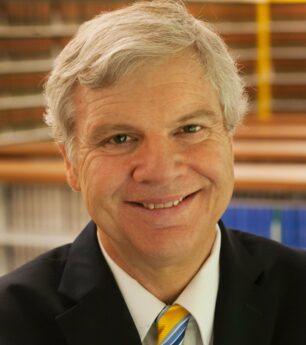 When he was growing up in Hartford, Conn., his family and friends provided Tony Luppino with an early exposure to the legal profession through their own interactions and connections with lawyers. So, he came to view it as an important profession, he says. He notes that crouching behind home plate at Fenway Park in catcher’s regalia would have been an important profession too, but the Red Sox recruiters, alas, never called. He headed off to Dartmouth College and became an American Studies major, which he says “allowed me to take courses relating to history and government, in addition to literature and other courses, and kept me on a path toward law school” at Stanford University. There would be more to a career in law than just a paycheck; Luppino saw in it something far nobler. “Law in general is fundamentally important in our society,” he says. “I believe that is well-captured in the following part of a speech by JFK: ‘Law is the adhesive force in the cement of society, creating order out of chaos and coherence in place of anarchy.’ ” For some 19 years, Luppino was engaged in private practice in law firms—approximately four in Boston and 15 in the Kansas City area, primarily focused on business and tax planning, especially with entrepreneurial ventures. Those experiences created an ideal pathway to UMKC’s School of Law, which collaborates with, among other academic units, the Bloch School of Management, a business school that has a national reputation for developing new cohorts of startup-minded graduates. After about seven years as an adjunct professor while still in private practice, he joined the regular faculty full-time in 2001, and today is a professor and director of entrepreneurship programs. Over the years, thousands of students aspiring to become lawyers, and hundreds of students in other UMKC programs, have been drawn into his orbit. He enjoys the interdisciplinary nature of entrepreneurial ventures—bringing together people trained in business, engineering, and law, for example—and opportunities presented at UMKC for the Law School to collaborate with other academic units and programs in entrepreneurship education and facilitation. More than two decades of engaging in the start-up culture here has shown him that Kansas City may not have the capital to match Boston’s massive ecosystem dollar for dollar, but we hold our own for a region this size. “Kansas City has been and is a fertile and productive area for creativity and entrepreneurship,” he says, “and it seems that more sources of capital are coming here as well.” Within the student cohort, he says, “I have seen, and have been very glad to see, increased student interest in what I would call social and civic entrepreneurship—in other words, interest in innovative venture proposals based on business models that include one or more social or civic purposes/missions in addition to and perhaps as a priority over financial profit.” It’s part of what he perceives as steady and increasing interest in entrepreneurship among law-school students that expresses itself in various ways—acquiring skills to counsel entrepreneurial clients, learning to operate their own firms as entrepreneurs, and in some cases, looking to start an entrepreneurial business of their own, apart from law practice.
When he was growing up in Hartford, Conn., his family and friends provided Tony Luppino with an early exposure to the legal profession through their own interactions and connections with lawyers. So, he came to view it as an important profession, he says. He notes that crouching behind home plate at Fenway Park in catcher’s regalia would have been an important profession too, but the Red Sox recruiters, alas, never called. He headed off to Dartmouth College and became an American Studies major, which he says “allowed me to take courses relating to history and government, in addition to literature and other courses, and kept me on a path toward law school” at Stanford University. There would be more to a career in law than just a paycheck; Luppino saw in it something far nobler. “Law in general is fundamentally important in our society,” he says. “I believe that is well-captured in the following part of a speech by JFK: ‘Law is the adhesive force in the cement of society, creating order out of chaos and coherence in place of anarchy.’ ” For some 19 years, Luppino was engaged in private practice in law firms—approximately four in Boston and 15 in the Kansas City area, primarily focused on business and tax planning, especially with entrepreneurial ventures. Those experiences created an ideal pathway to UMKC’s School of Law, which collaborates with, among other academic units, the Bloch School of Management, a business school that has a national reputation for developing new cohorts of startup-minded graduates. After about seven years as an adjunct professor while still in private practice, he joined the regular faculty full-time in 2001, and today is a professor and director of entrepreneurship programs. Over the years, thousands of students aspiring to become lawyers, and hundreds of students in other UMKC programs, have been drawn into his orbit. He enjoys the interdisciplinary nature of entrepreneurial ventures—bringing together people trained in business, engineering, and law, for example—and opportunities presented at UMKC for the Law School to collaborate with other academic units and programs in entrepreneurship education and facilitation. More than two decades of engaging in the start-up culture here has shown him that Kansas City may not have the capital to match Boston’s massive ecosystem dollar for dollar, but we hold our own for a region this size. “Kansas City has been and is a fertile and productive area for creativity and entrepreneurship,” he says, “and it seems that more sources of capital are coming here as well.” Within the student cohort, he says, “I have seen, and have been very glad to see, increased student interest in what I would call social and civic entrepreneurship—in other words, interest in innovative venture proposals based on business models that include one or more social or civic purposes/missions in addition to and perhaps as a priority over financial profit.” It’s part of what he perceives as steady and increasing interest in entrepreneurship among law-school students that expresses itself in various ways—acquiring skills to counsel entrepreneurial clients, learning to operate their own firms as entrepreneurs, and in some cases, looking to start an entrepreneurial business of their own, apart from law practice.
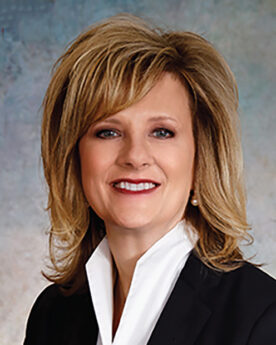 JuliAnn Mazachek still remembers “when the magic happened”—her words—and the first steps to a career in higher education. An accounting undergrad, she had return to the University of Kansas to earn an advanced degree. “It was during my MBA program I had the first opportunity to teach accounting, a course that many students do not enjoy as much as me,” she says. “I learned the joy that came from teaching others about something you love and seeing them learn something they never thought they could, or would, be able to learn. It was then I realized I wanted to make higher education my life’s work. I knew the next step was doctoral study.” From there, it’s a nearly straight line to the presidency of Washburn University, a title she assumed just last month after more than 30 years in various roles of the Topeka-based municipal university. Born in Topeka and raised there, then in St. Louis, she’s a first-generation college student “who always loved math and science” so she pursued an engineering degree at Missouri University of Science and Technology. The college instructional dynamic she experienced was an awaking in the power of teaching. “The seed for education as a career was first planted there,” she says. Later came the realization that an MBA would perfectly complement her goals in engineering, leading up to that magical moment. She came to Washburn in 1992 on the accounting faculty, and eventually served as dean for its school of business, the vice president for academic affairs. Last year, she ventured out of state to take the leadership of Midwestern State University in Texas, but quickly returned to Topeka upon the retirement of longtime president Jerry Farley. Simply put, “I could not turn down the opportunity to come home,” Mazachek says. “The pull to return to the place our family had called home for 30 years was too strong. My heart belongs to Washburn University, and I am honored to serve as its 15th president.” Now, the chore of leading during an era of declining nationwide is hers to address. “It is a challenging time in higher education,” Mazachek says. “Washburn, like most institutions, faces enrollment challenges and changing student demographics. Working as a team, we will prepare for and embrace a future that is ready for new ideas to best meet the needs of students and our communities.” Academic courses and programs may have to change, she says, as well as delivery methods and continuing initiatives to make college affordable. “We know the tremendous importance of educating our future work force, business owners, thought leaders and community partners,” Mazachek says. “The vitality of our communities and economy depends on the next generation, which is why Washburn continues to always put students first.”
JuliAnn Mazachek still remembers “when the magic happened”—her words—and the first steps to a career in higher education. An accounting undergrad, she had return to the University of Kansas to earn an advanced degree. “It was during my MBA program I had the first opportunity to teach accounting, a course that many students do not enjoy as much as me,” she says. “I learned the joy that came from teaching others about something you love and seeing them learn something they never thought they could, or would, be able to learn. It was then I realized I wanted to make higher education my life’s work. I knew the next step was doctoral study.” From there, it’s a nearly straight line to the presidency of Washburn University, a title she assumed just last month after more than 30 years in various roles of the Topeka-based municipal university. Born in Topeka and raised there, then in St. Louis, she’s a first-generation college student “who always loved math and science” so she pursued an engineering degree at Missouri University of Science and Technology. The college instructional dynamic she experienced was an awaking in the power of teaching. “The seed for education as a career was first planted there,” she says. Later came the realization that an MBA would perfectly complement her goals in engineering, leading up to that magical moment. She came to Washburn in 1992 on the accounting faculty, and eventually served as dean for its school of business, the vice president for academic affairs. Last year, she ventured out of state to take the leadership of Midwestern State University in Texas, but quickly returned to Topeka upon the retirement of longtime president Jerry Farley. Simply put, “I could not turn down the opportunity to come home,” Mazachek says. “The pull to return to the place our family had called home for 30 years was too strong. My heart belongs to Washburn University, and I am honored to serve as its 15th president.” Now, the chore of leading during an era of declining nationwide is hers to address. “It is a challenging time in higher education,” Mazachek says. “Washburn, like most institutions, faces enrollment challenges and changing student demographics. Working as a team, we will prepare for and embrace a future that is ready for new ideas to best meet the needs of students and our communities.” Academic courses and programs may have to change, she says, as well as delivery methods and continuing initiatives to make college affordable. “We know the tremendous importance of educating our future work force, business owners, thought leaders and community partners,” Mazachek says. “The vitality of our communities and economy depends on the next generation, which is why Washburn continues to always put students first.”
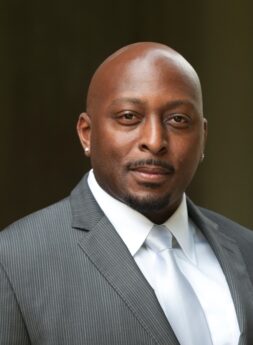 Earl Phalen beat the odds in life. And for most of that life, he’s been working to help thousands of young school students, mostly in urban settings, do the same. The president and CEO of KC Scholars got his first break as a toddler when an enlightened white couple defied social convention of the 1960s by adopting a young black boy who had been abandoned a birth. “My parents,” he says, “have always put children at the forefront of everything.” Their loving embrace put him on a path to Yale University, then Harvard Law School, at a time when 70 percent of his young African-American peers were likely to end up incarcerated. “My parents had seven children prior to bringing me into the family, and now there are 58 grandchildren,” Phalen marvels. “So children are a huge part of my family, and watching my parents lead the family in a way where children were always first has been instilled in me.” In various settings, he has turned that inspiration into work for social causes that included a women’s shelter, support programs for disadvantaged students, and eventually, his own non-profit, Summer Advantage, which is grounded in the premise that young minds can’t be educated if they can’t even read. He turned that into a national model that has engaged more than 15,000 students since its 2009 founding, earning Phalen a trophy case full of national awards. When he explored an expansion into Kansas City, he crossed paths with the Kauffman Foundation, which was looking to fill an open seat among its trustees—one that, by chance, had been occupied by the former president of his alma mater at Yale. Phalen won the foundation over. “Several things attracted me to the opportunity,” he says. “First, I sensed something special about Kauffman because of the way they held themselves accountable for outcomes. I had seen foundations hold grantees accountable for outcomes but had never seen them hold themselves equally accountable.” That connection, in turn, led to KC Scholars, which had been established with Kauffman support. “When I was approached about joining KC Scholars, I was both humbled and honored,” Phalen says. “I felt like KC Scholars was one of the best scholarship programs in the country. A number of factors made and makes it one of the strongest and most impressive models in the country.” Among them, independent evaluations demonstrate 94 percent annual persistence rates and scholars tracking towards 75 percent college graduation rates, which Phalen says is seven times the national average for first-generation and low- and moderate-income students. The program also offers substantial scholarships—$50,000 over five years—helping many students to graduate debt free, and it supported 627 students last year. “All of these factors,” Phalen says, “combined with the opportunity to grow the program to positively impact the lives of many adults and families, made me incredibly excited about leading KC Scholars.”
Earl Phalen beat the odds in life. And for most of that life, he’s been working to help thousands of young school students, mostly in urban settings, do the same. The president and CEO of KC Scholars got his first break as a toddler when an enlightened white couple defied social convention of the 1960s by adopting a young black boy who had been abandoned a birth. “My parents,” he says, “have always put children at the forefront of everything.” Their loving embrace put him on a path to Yale University, then Harvard Law School, at a time when 70 percent of his young African-American peers were likely to end up incarcerated. “My parents had seven children prior to bringing me into the family, and now there are 58 grandchildren,” Phalen marvels. “So children are a huge part of my family, and watching my parents lead the family in a way where children were always first has been instilled in me.” In various settings, he has turned that inspiration into work for social causes that included a women’s shelter, support programs for disadvantaged students, and eventually, his own non-profit, Summer Advantage, which is grounded in the premise that young minds can’t be educated if they can’t even read. He turned that into a national model that has engaged more than 15,000 students since its 2009 founding, earning Phalen a trophy case full of national awards. When he explored an expansion into Kansas City, he crossed paths with the Kauffman Foundation, which was looking to fill an open seat among its trustees—one that, by chance, had been occupied by the former president of his alma mater at Yale. Phalen won the foundation over. “Several things attracted me to the opportunity,” he says. “First, I sensed something special about Kauffman because of the way they held themselves accountable for outcomes. I had seen foundations hold grantees accountable for outcomes but had never seen them hold themselves equally accountable.” That connection, in turn, led to KC Scholars, which had been established with Kauffman support. “When I was approached about joining KC Scholars, I was both humbled and honored,” Phalen says. “I felt like KC Scholars was one of the best scholarship programs in the country. A number of factors made and makes it one of the strongest and most impressive models in the country.” Among them, independent evaluations demonstrate 94 percent annual persistence rates and scholars tracking towards 75 percent college graduation rates, which Phalen says is seven times the national average for first-generation and low- and moderate-income students. The program also offers substantial scholarships—$50,000 over five years—helping many students to graduate debt free, and it supported 627 students last year. “All of these factors,” Phalen says, “combined with the opportunity to grow the program to positively impact the lives of many adults and families, made me incredibly excited about leading KC Scholars.”
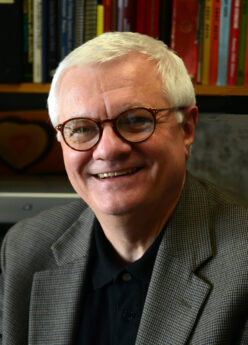
The first day Kent Spreckelmeyer stepped onto the campus of the University of Kansas in Lawrence, he became part of a community more than 20 times the population of his hometown near the northwestern tip of the Show-Me State: Oregon, Mo., in Holt County. The KU campus would provide a lifetime of engagement in architecture, both as an instructor and administrator, and Spreckelmeyer immersed himself in it immediately. “As soon as I entered architecture school, I began apprenticing in the St. Joseph firm of Brunner and Brunner, which was the successor firm of Eckel and Aldrich,” he recalls. “Those firms were responsible for the design of most of the significant late 19th- and early 20th-century buildings in northwest Missouri. I spent hours going through the original ink-on-vellum drawings in the plan vaults. Being in touch with that rich design history was a highlight of my early architectural education.” There was never any hesitation or second-guessing of majors. “I entered KU specifically to pursue architecture as a recipient of the Kansas-Missouri tuition waiver program,” he says. “I never thought of an alternative career path, primarily because of the quality of the faculty in the school at the time.” KU’s architecture program had a long tradition of design education in the School of Engineering, and administrators were just starting to formulate an independent School of Architecture and Urban Design. “Coming from an agricultural background, I was attracted to a profession that was focused on creating structures that fit a specific natural environment and landscape,” Spreckelmeyer says. “Most of the buildings I experienced as a young person were built of local materials by the people who would use and occupy those structures. I have retained an interest in the ways environments arise from natural social and environmental processes and serve the specific needs of the human condition.” He left Lawrence long enough to secure a doctorate from the University of Michigan but came back intent on combining a full-time academic career with a connection to practice and has operated his own small firm on the side ever since. “I was fortunate to have done a significant amount of research in Ann Arbor in health-care design and even more fortunate to be given the opportunity to consult with a fellow Michigan alum, Frank Zilm, in his health-care planning firm in Kansas City,” Spreckelmeyer says. “Over the years, I have worked with many of Frank’s health-care clients and collaborated with him on student design and research projects.” Across those decades, he says he has observed students becoming more interested in design as a way to improve and affect specific aspects of the ways people use built environments. “Kansas City, for example, has become the most well-known locus for the design of sports and entertainment facilities,” he notes. “In my own area of health-care design, a group of KU faculty has formed the Institute of Health & Wellness Design to focus architectural careers in health-related building types. The architecture program is also recognized as a leader in design-build education. This is a natural result of the increasing complexity of physical environments, and it has been accelerated by the introduction of digital design and fabrication techniques.”
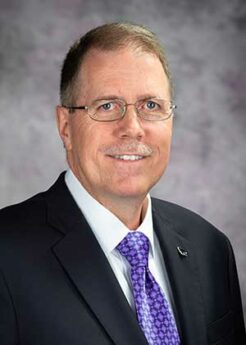 Raise your hand if you know the name of a provost-level university administrator who was born in Africa, raised by missionary parents, has recorded a rock band album, and is regarded as an expert on cognitive processes drive political opinions and behavior. If you said Charles Taber, you’re today’s winner. The provost at Kansas State University since 2018, he brings a true worldview to his work in higher-ed administration. “I was born in Central Africa and grew up in West Africa,” he says, which gave him a background that “fundamentally shaped how I viewed the importance of service and set me up for the career path I followed.” The bulk of that unfolded in the research lab at Stony Brook University, a state university near Long Island’s north shore. “My research career was really energized by two fascinations: how people think and what drives political behavior,” Taber says. “So I combined psychology and political science.” His lab work led to a bevy of research articles and spawned reporting by academic journals, eventually leading him to author The Rationalizing Voter in 2013. Taber moved into academic administration after a nudge from a good friend at Stony Brook. “The pitch that resonated was the opportunity to serve young people and the broader community,” he says. “Five years ago, when I was recruited to K-State, it was again the opportunity to serve that was particularly exciting. K-State has a special connection to our land-grant history, and that commitment to students and communities across the state, region, and world was very attractive to me.” Taber’s journey began as a student at East Tennessee State University, where he earned his degree in political science in 1984. He secured his master’s and doctoral degrees from the Urbana-Champaign campus of the University of Illinois after choosing a path that, while academia’s gain, was rock music’s loss. “The folk-rock band I played in at the time was recording a first album, but we broke up shortly after, and my decision was made easier” Taber says. In Manhattan, he has a full administrative agenda as the dean of nine academic colleges, the university’s library system, its graduate school, its global campus, and the Staley School of Leadership. In addition, the CEOs and deans of both K-State Salina and K-State Olathe report to Taber, as does the leadership of offices overseeing enrollment management, research, international programs, and student success. The breadth of responsibility was a powerful draw on its own, but Taber found an additional incentive. “It was really the land grant mission that attracted me,” he says. “I love the way K-State transforms individual lives through educational opportunity, solves problems for community partners through research and extension, and supports economic development for our state and region.” In an era of declining collegiate enrollment, his job is not without challenges. “We are a people organization,” Taber says. “Our most fundamental challenges across all colleges are to grow student enrollments, attract and retain high-quality faculty and staff, and empower our community and industry partners.”
Raise your hand if you know the name of a provost-level university administrator who was born in Africa, raised by missionary parents, has recorded a rock band album, and is regarded as an expert on cognitive processes drive political opinions and behavior. If you said Charles Taber, you’re today’s winner. The provost at Kansas State University since 2018, he brings a true worldview to his work in higher-ed administration. “I was born in Central Africa and grew up in West Africa,” he says, which gave him a background that “fundamentally shaped how I viewed the importance of service and set me up for the career path I followed.” The bulk of that unfolded in the research lab at Stony Brook University, a state university near Long Island’s north shore. “My research career was really energized by two fascinations: how people think and what drives political behavior,” Taber says. “So I combined psychology and political science.” His lab work led to a bevy of research articles and spawned reporting by academic journals, eventually leading him to author The Rationalizing Voter in 2013. Taber moved into academic administration after a nudge from a good friend at Stony Brook. “The pitch that resonated was the opportunity to serve young people and the broader community,” he says. “Five years ago, when I was recruited to K-State, it was again the opportunity to serve that was particularly exciting. K-State has a special connection to our land-grant history, and that commitment to students and communities across the state, region, and world was very attractive to me.” Taber’s journey began as a student at East Tennessee State University, where he earned his degree in political science in 1984. He secured his master’s and doctoral degrees from the Urbana-Champaign campus of the University of Illinois after choosing a path that, while academia’s gain, was rock music’s loss. “The folk-rock band I played in at the time was recording a first album, but we broke up shortly after, and my decision was made easier” Taber says. In Manhattan, he has a full administrative agenda as the dean of nine academic colleges, the university’s library system, its graduate school, its global campus, and the Staley School of Leadership. In addition, the CEOs and deans of both K-State Salina and K-State Olathe report to Taber, as does the leadership of offices overseeing enrollment management, research, international programs, and student success. The breadth of responsibility was a powerful draw on its own, but Taber found an additional incentive. “It was really the land grant mission that attracted me,” he says. “I love the way K-State transforms individual lives through educational opportunity, solves problems for community partners through research and extension, and supports economic development for our state and region.” In an era of declining collegiate enrollment, his job is not without challenges. “We are a people organization,” Taber says. “Our most fundamental challenges across all colleges are to grow student enrollments, attract and retain high-quality faculty and staff, and empower our community and industry partners.”
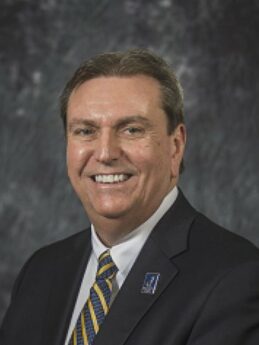 Randy Watson’s grandmother never made it to college. But that didn’t mean she couldn’t appreciate the opportunities it would create for her family. “She got all of us cousins together once—I was the oldest—and she said, ‘You all need to go to college, and think about being teachers; it’s an honorable profession.’ That had a profound effect,” says Watson, the commissioner of education in Kansas, steering K-12 policy in the state. “We were working class poor, not poverty poor, but there was not much money being raised by a single parent” in his native Coffeyville, Kan. “So I always knew would go to college and be a teacher. My grandmother’s inspiration did that.” But what to teach? Turns out, Watson was enamored with history—so much so that, when he was closing in on a degree at K-State, he learned that he wouldn’t be teaching it unless he pretty quickly enrolled in courses in the school of education. That he did, and while in Manhattan, he built on an acquaintance with legendary basketball coach Jack Hartman, who had coached at Coffeyville, to chart his own coaching interests—many a teacher in Kansas K-12 settings helps ends meet with coaching duties. Thus prepped for the real world, Watson embarked on a journey across districts small and mid-size, in places like Tescott and Andover, rising through administrative ranks to become superintendent in McPherson. He might have retired out of that role, he said, but for a good friend—Andy Tompkins—who has served in roles that include education commissioner, Regents board member and interim university president. When Tompkins was preparing to leave the K-12 role, he encouraged Watson to apply. “I said I had no desire to do that—I had a great job, was compensated well, we had a great community, families and kids—but he bugged me and bugged me.” In November 2014, he was selected as commissioner, and is now tasked with overseeing accreditation for 286 public school districts and nearly 100 private and parochial schools. The thing that makes his job tough is the geographical diversity. “The average, or median enrollment in public schools systems is about 500 in the district itself, so Kansas is extremely rural.” Districts like Wichita, Blue Valley and Olathe, with tens of thousands of students are absolutely outside the norm. But “wherever you live in Kansas, you tend to think of that place as what the rest of Kansas looks like,” Watson says, and if you do, you’re probably wrong. What people should now, he said, is that in Kansas, it’s not purely an east-west split—though that is an issue—“It’s rural vs. suburban, like Johnson County, vs. urban like Kansas City, Kan.,” he said. Those three represent very distinct differences. What makes Kansas so interesting is the small population but a very large geography with different tax bases and different histories—it makes for really challenging work trying to establish policy for all these districts to adhere to.”
Randy Watson’s grandmother never made it to college. But that didn’t mean she couldn’t appreciate the opportunities it would create for her family. “She got all of us cousins together once—I was the oldest—and she said, ‘You all need to go to college, and think about being teachers; it’s an honorable profession.’ That had a profound effect,” says Watson, the commissioner of education in Kansas, steering K-12 policy in the state. “We were working class poor, not poverty poor, but there was not much money being raised by a single parent” in his native Coffeyville, Kan. “So I always knew would go to college and be a teacher. My grandmother’s inspiration did that.” But what to teach? Turns out, Watson was enamored with history—so much so that, when he was closing in on a degree at K-State, he learned that he wouldn’t be teaching it unless he pretty quickly enrolled in courses in the school of education. That he did, and while in Manhattan, he built on an acquaintance with legendary basketball coach Jack Hartman, who had coached at Coffeyville, to chart his own coaching interests—many a teacher in Kansas K-12 settings helps ends meet with coaching duties. Thus prepped for the real world, Watson embarked on a journey across districts small and mid-size, in places like Tescott and Andover, rising through administrative ranks to become superintendent in McPherson. He might have retired out of that role, he said, but for a good friend—Andy Tompkins—who has served in roles that include education commissioner, Regents board member and interim university president. When Tompkins was preparing to leave the K-12 role, he encouraged Watson to apply. “I said I had no desire to do that—I had a great job, was compensated well, we had a great community, families and kids—but he bugged me and bugged me.” In November 2014, he was selected as commissioner, and is now tasked with overseeing accreditation for 286 public school districts and nearly 100 private and parochial schools. The thing that makes his job tough is the geographical diversity. “The average, or median enrollment in public schools systems is about 500 in the district itself, so Kansas is extremely rural.” Districts like Wichita, Blue Valley and Olathe, with tens of thousands of students are absolutely outside the norm. But “wherever you live in Kansas, you tend to think of that place as what the rest of Kansas looks like,” Watson says, and if you do, you’re probably wrong. What people should now, he said, is that in Kansas, it’s not purely an east-west split—though that is an issue—“It’s rural vs. suburban, like Johnson County, vs. urban like Kansas City, Kan.,” he said. Those three represent very distinct differences. What makes Kansas so interesting is the small population but a very large geography with different tax bases and different histories—it makes for really challenging work trying to establish policy for all these districts to adhere to.”